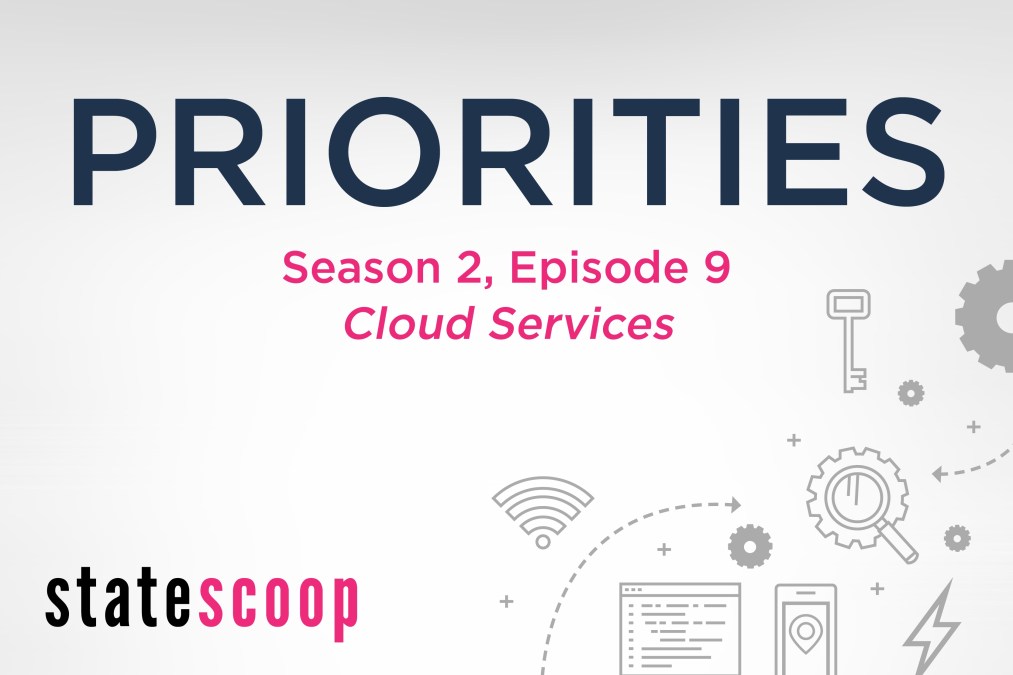
With legacy systems and growing citizen demand, states see advantages with cloud
For state government technology executives, cloud computing can offer a lot of opportunities as well as some major challenges.
In Michigan, Dave DeVries the states chief information officer says the biggest opportunity his team has found in cloud computing has come through the opportunity to replace capital expenses with operational expenditures.
DeVries team starting before he joined state government has begun the process of forecasting how to replace the states legacy technology with cloud-driven, modern options.
If I can get out of the huge expense of a capital expense where Ive got to forecast what my IT infrastructure replacement looks like, by what technology is going to be replaced by what year, what new model is going to be here, DeVries says in an episode of StateScoop’s Priorities podcast.
The Michigan Department of Technology, Management and Budget structure, DeVries says, offers him a unique opportunity to embrace cloud computing. By having oversight over the management and budget sides of state government, as well as technology, the state CIO says he has a unique opportunity to move the needle forward on cloud.
All those things where a CIO would say I would love to do this, but I cant get it through the procurement, or the procurement actions for the entire state of Michigan, they all work for me, so that part of the obstacle is down, DeVries says.
For Mike Wons the now-former chief technology officer for the state of Illinois the driver for his state to cloud computing truly comes for legacy modernization.
The challenge we still have is moving some of those existing workloads, some of those legacy applications that number into the thousands. Many of these are older technologies that were looking at rationalizing to figure out if they belong in the cloud, Wons says on Priorities.
At the time of recording, Wons was still Illinois chief technology officer. In mid-December, Wons announced he was leaving state government for the private sector. Before he departed, Wons and his team helped facilitate the migration of more than 10 percent of the states workload into the cloud. The eventual goal for the team, Wons says, is at least 35 percent.
Cloud is clearly a journey for us, Wons says. Wd feel good that weve got 10 percent of the workload in the cloud today. We know that we will hit that 35 percent and go beyond that as it pertains to the future state.
On the podcast:
- Dave DeVries, chief information officer, Michigan
- Mike Wons, former chief technology officer, Illinois
- Jake Williams, associate publisher and director of strategic initiatives, StateScoop
What to listen for:
- During DeVries tenure in the federal government, the approach was move to the cloud, everything will be good, he says. In Michigan, however, the state has moved some capabilities to the cloud, and is examining others.
- In Illinois, the state took a three-pronged approach to cloud that leveraged public, private and hybrid cloud offerings.
- On DeVries first day on the job, the new CIO needed to make a decision on the future of the implementation of the states new ERP project. After deliberation, the CIO decided that due to the agile nature of the cloud portion of the project, it was ready to go.
- For Wons, if a legacy technology is not in the states future roadmap, he and his team while he was in state government were considering the replacement of that technology with a cloud service.
- States are the microcosm of exchange of information when it comes to technology like cloud, DeVries said. Local governments look to states for guidance on how to approach things like cloud.
Priorities is StateScoops regular podcast that examines the leading strategies, technologies and challenges that state CIOs expect to face this year.
In addition to listening to Priorities on StateScoop.com, you can now subscribe to the podcast on iTunes and have episodes delivered directly to your podcasts app on your smartphone when they are released.


